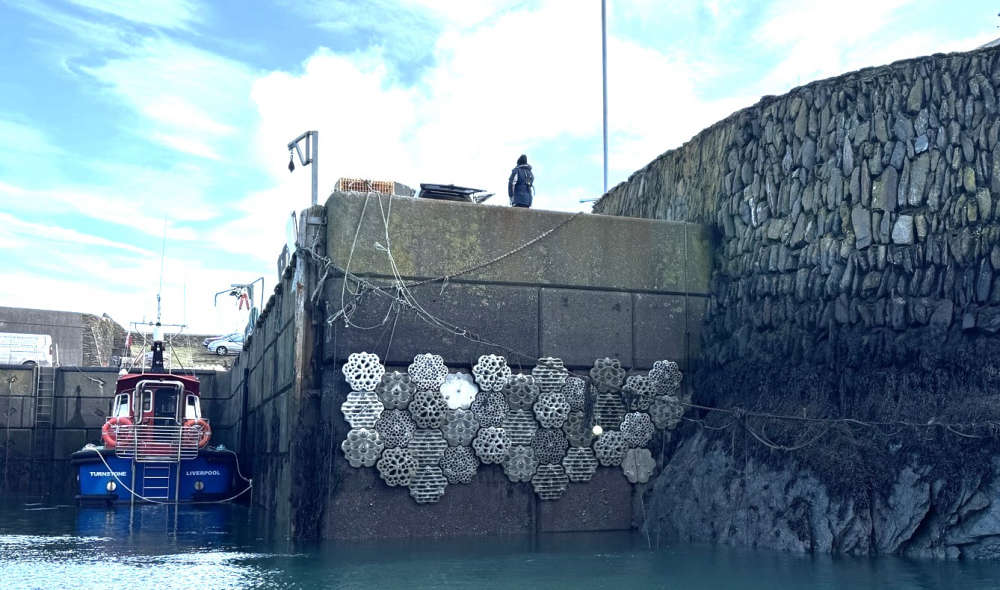
A number of living seawall habitat panels at Amlwch Port to help enhance marine ecology.
The panels - provided by Natural Resources Wales (NRW) - have been installed on the artificial concrete part of the port structure, copying features found on natural shorelines that support wildlife and biodiversity.
According to Anglesey Council, the panels create more space for species to settle and offer shelter from predators and harsh conditions, which in-turn helps to boost natural ecosystems.
The project was made possible thanks to funding from the UK Government's Shared Prosperity Fund.
In total, 34 panels covering an area of 5.2m x 1.8m have been installed in the Port, they include:
- 8 Rockpool panels (attracting species not found on plain walls, such as certain algae, tunicates, springtails, and many juvenile limpets)
- 8 Crevices (help topshells by giving them shelter)
- 8 Honeycomb panels (provide small spaces used by winkles and as egg-laying spots for dogwhelks)
- 8 swim through panels (grow lots of algae—first green, then fucoid—which grows higher than on plain seawalls)
- 2 control panels
Cllr Nicola Roberts, portfolio holder for climate change at Anglesey Council, said: "This is a fantastic project with numerous benefits, including enhancing biodiversity, improving water quality, and creating vital habitats."
"Unlike traditional seawalls, living seawalls support a wider range of marine life. Their specially designed panels can help filter particles from the water, leading to improved water quality, and they also reduce wave energy, helping to mitigate coastal erosion."
Master's students from Aberystwyth University will monitor the living seawall by conducting regular biodiversity surveys.
Ceri Beynon-Davies, NRW's senior advisor on marine and coastal wellbeing, added: "We were really pleased to support Anglesey County Council install the living seawall panels at Amlwch Port."
"By providing a habitat for various marine organisms, such as limpets, dogwhelks, topshells and algae, the panels can help to improve the biodiversity of structures in the port."
"We hope the panels provide inspiration to people too, reminding us that we can all take action, big or small, to protect our seas and the benefits they provide us."







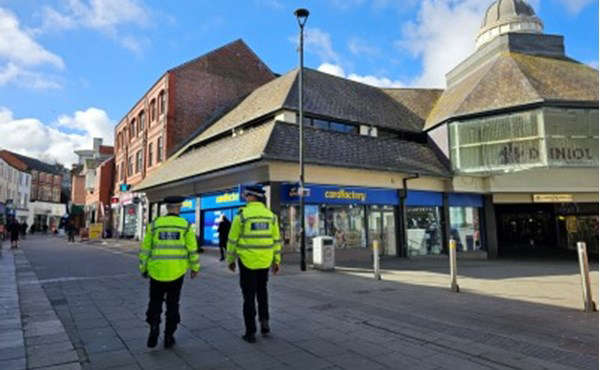 'Renew Bangor': two High Street businesses evicted
'Renew Bangor': two High Street businesses evicted
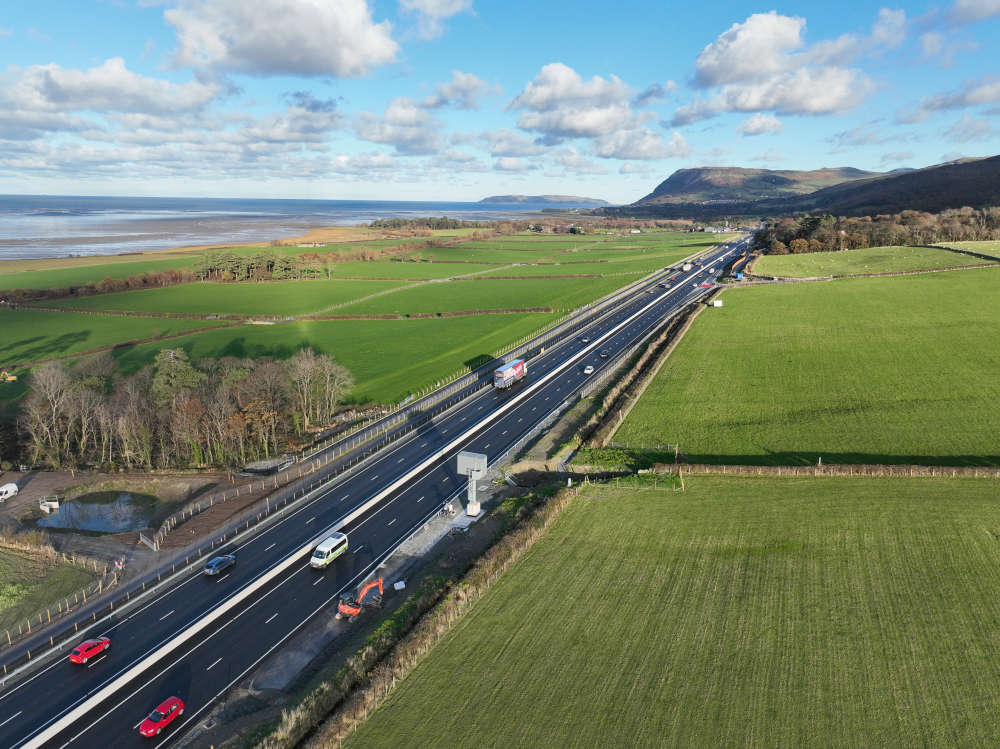 Aber Tai’r Meibion 'more resilient' two years on
Aber Tai’r Meibion 'more resilient' two years on
 Holyhead man jailed for assaulting police officers
Holyhead man jailed for assaulting police officers
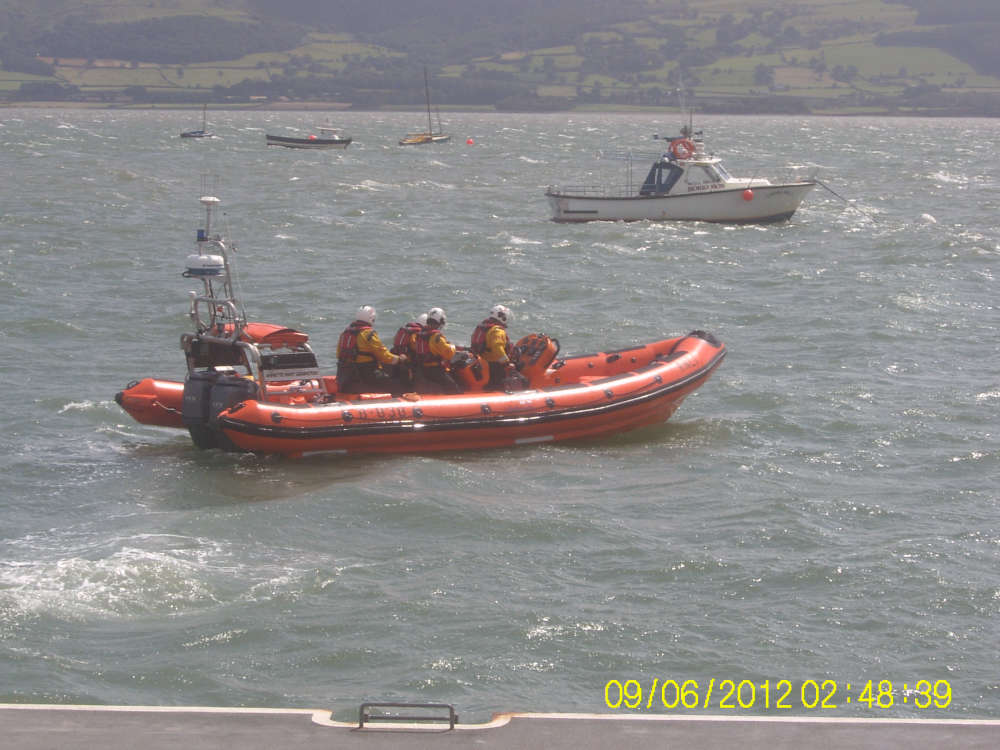 Two callouts for Beaumaris lifeboat
Two callouts for Beaumaris lifeboat
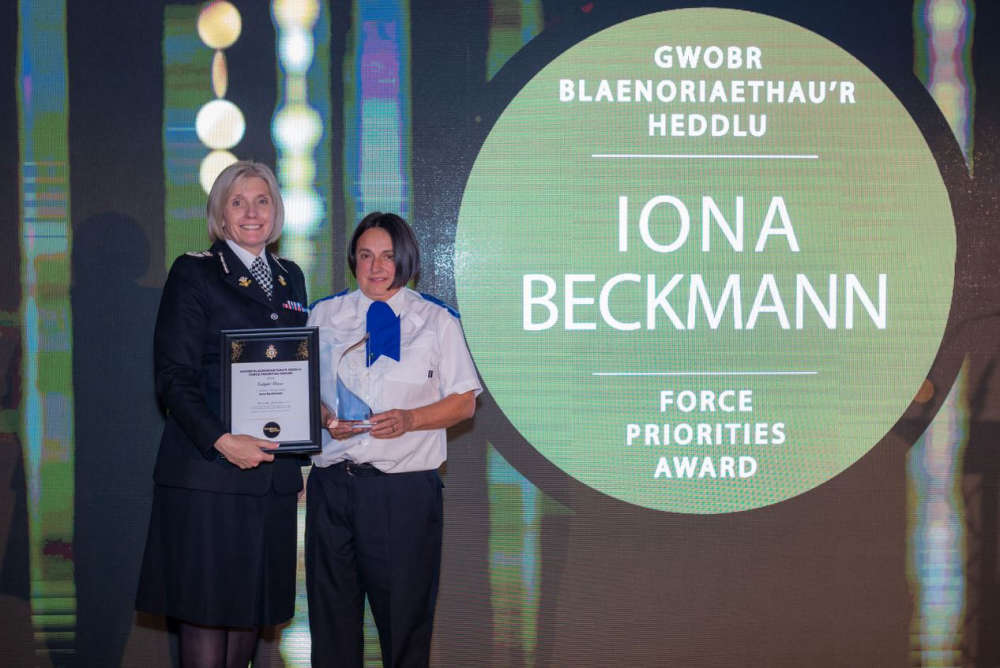 PCSO retires after eighteen years
PCSO retires after eighteen years


